Money Matters in the Anacortes School District
The League of Education Voters invited leaders from all around Washington state to share their school district’s story on how money matters, and how they are using it to reduce the opportunity and achievement gaps. This post is the first school district perspective in our five-part blog series, “Money Matters. But so does how it’s spent.”
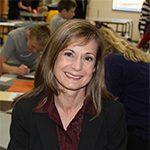 By Jeannette Papadakis, President, Anacortes School Board
By Jeannette Papadakis, President, Anacortes School Board
The increased funding from the 2014 legislative session, as the first installment for fully funding K–12 education, is directly benefiting Anacortes students. The additional resources received are being used to positively impact the Anacortes School District’s instructional goals.
Thanks to the work of the legislature, we have been able to continue to fund full-day kindergarten for every student in our district. We believe that starting “school ready” is a requirement for future academic success. Through initiatives such as our aggressive early learning efforts and the ability to continue full-day kindergarten, our student assessment data shows substantial and consistent gains in this area.
Another area we have addressed with additional funding is first and second grade literacy. By the completion of these grades, 30 percent of our students are not on target to meet the reading standards. It is critical to their future academic success that students are able to read by third grade. After analyzing data, our current practices and curriculum, and studying the latest research, we hired two primary literacy instructional coaches to address this problem. Current research shows that students have the best gains with a certified, high-quality teacher (versus our former pull-out model). These instructional coaches model, guide, collaborate, and provide feedback, with the goal of directly impacting student reading achievement.
We appreciate our legislature taking the necessary initial steps to fully fund public education. Through the use of these additional resources the Anacortes School District is addressing specific student needs and outcomes.
Jeannette Papadakis is the President of the Anacortes School Board. She has served on the board since 2007.
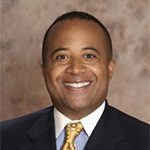 By Tony Moore, Member, Federal Way School Board
By Tony Moore, Member, Federal Way School Board The National Assessment of Educational Progress (NAEP) 2013 test results were heralded recently by many in our state for the increases in fourth and eighth grade math and reading scores.
The National Assessment of Educational Progress (NAEP) 2013 test results were heralded recently by many in our state for the increases in fourth and eighth grade math and reading scores.
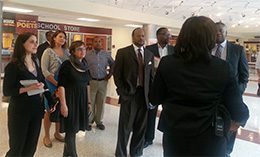
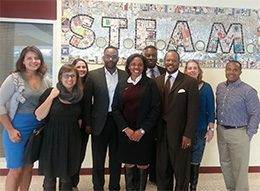 Representatives from League of Education Voters and community-based organizations recently traveled to Baltimore, Maryland, to learn more about the discipline reforms that have been implemented by Baltimore City Public Schools with great success. Upon their return, each member contributed to our blog series, “Transforming School Discipline: Lessons from Baltimore.” The post below introduces the series, which will run through mid-December.
Representatives from League of Education Voters and community-based organizations recently traveled to Baltimore, Maryland, to learn more about the discipline reforms that have been implemented by Baltimore City Public Schools with great success. Upon their return, each member contributed to our blog series, “Transforming School Discipline: Lessons from Baltimore.” The post below introduces the series, which will run through mid-December.  Last week, LEV’s CEO Chris Korsmo gave a “TED Talk” at the
Last week, LEV’s CEO Chris Korsmo gave a “TED Talk” at the 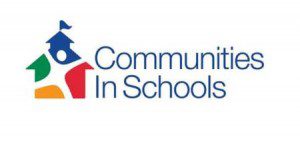 Dee Klem, a parent of two in the Kent School District who runs the district’s elementary Communities in Schools’ program, wrote this blog post for our
Dee Klem, a parent of two in the Kent School District who runs the district’s elementary Communities in Schools’ program, wrote this blog post for our 